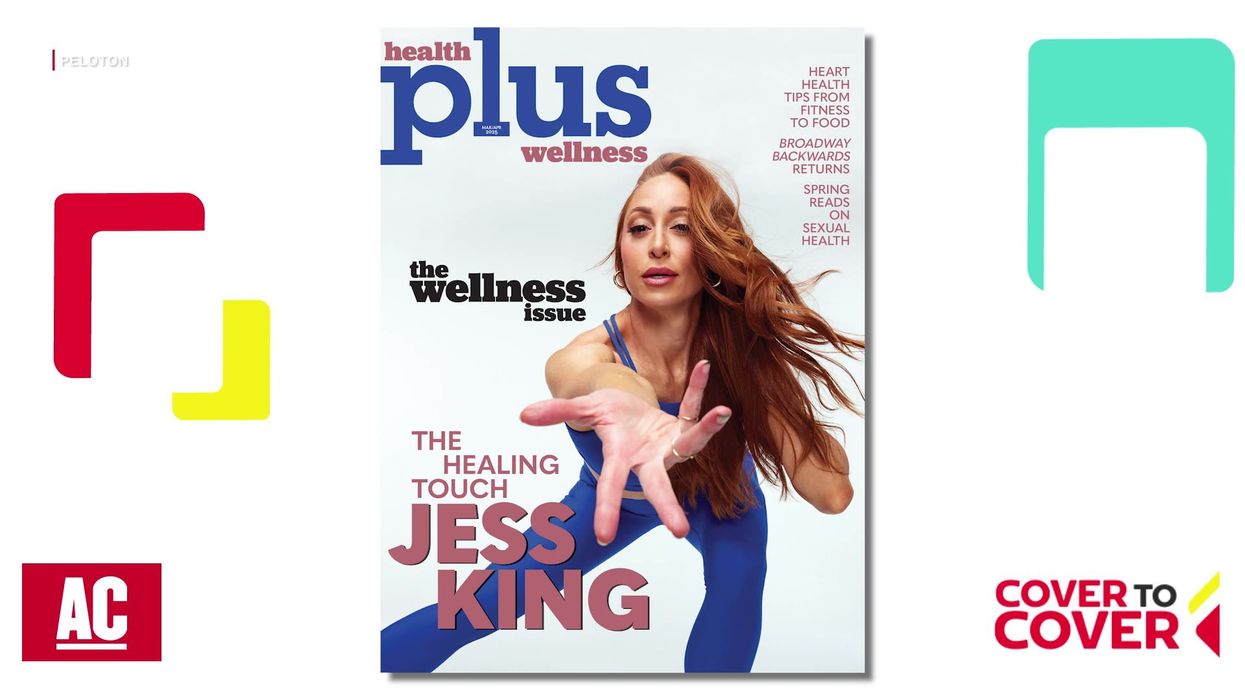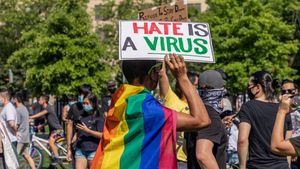It is impossible to have a modern conversation about HIV and HIV stigma without having the term “undetectable” used, misused, and abused. Those involved in HIV activism certainly have strong opinions on how the term — which refers to an HIV-positive person’s viral load once it becomes so low it is no longer detectable by current testing processes — should be used; and who isn't using it correctly. Some herald the term as a badge of honor worn by those who are compliant with treatment and open about their HIV status. Others scold the same group of people for using the term as an excuse to engage in unsafe sexual behavior.
Neither oversimplified accolades nor mudslinging moral judgments should have a place in conversations about HIV stigma, prevention, and the state that is the end goal of compliance with medication. But many gay men are still unclear about what being “undetectable” truly constitutes. So, how do we get to a place where we can discuss what it does and doesn’t mean without all of us looking dirty in the end?
For those who are still unsure: An HIV-positive person can achieve undetectable viral levels after undergoing antiretroviral therapy. A person's viral load affects both their own health and the chance that they will transmit HIV. According to a study in The New England Journal of Medicine, early antiretroviral therapy reduced the likelihood of transmission by 96 percent. Once antiretroviral meds help a person achieve an undetectable viral load, it is possible to remain at this level provided the person continues to take the medication as directed.
An education on the specifics of HIV as it is today, including the meaning of being undetectable, should be mandatory reading for gay men, regardless of status. It is critical to the entire community to understand where we are in terms of HIV research. No matter how far removed you are from the HIV pandemic, you are still susceptible to the virus (especially if you think you aren’t).
Unless we find a way to infuse subliminal HIV messaging into the speakers of every H&M in the country, casual conversation among our peers is the most effective method of education. But, as with many discussions concerning HIV, far too many of these discussions devolve into blame games. Who loses? Everyone.
A person with an undetectable viral load and a person who is HIV-negative both get tested regularly to make sure that they're still safely in their category. Yet for some reason, discussing an undetectable status immediately gets bogged down by shame-mongering and moral accusations. Even using the term to describe your own HIV status opens you to ridicule and judgment.
The following quote was taken from a response to a post asking how we can make progress in eliminating HIV stigma:
“I’d like to hear more responsible discussion in our community about how dangerous and reckless it is to use the term ‘undetectable‘ given the implications of treating ’undetectable‘ status as if it were really something different from being positive.”
This claim wasn’t made with malicious intent, but does give a lucid demonstration of the difficulty of discussing HIV-related topics without subconsciously casting judgment.
In fact, people who are undetectable should never stop talking about their status. At the gym, on the subway, and even at Sunday services (if that’s your sort of thing).
“Did you catch the last inning of the Rangers game last night?”
“Hell no, I don’t watch sports. But my viral load is 57!”
A person discussing their undetectable status is a beautiful thing because it means they have been tested, are on treatment, and are open and honest about their HIV status. The idea that the term “undetectable” is used only to lure unsuspecting prey into performing high-risk sexual acts with someone who is positive is both stigmatizing and criminalizing. This notion removes all responsibility from the other party when they have just been given the information they need to protect their own health. And it is, in fact, their responsibility to protect their own health (and no one else’s).
Far too often, our community mistakes silence as an admission of innocence. If no one asks a person’s HIV status, no one tells. Worse, some will assert their HIV-negative status even if it’s been months or even years since their last test.
Yet these proverbial question marks walk around every day, unscathed by denunciations associated with their bedtime behavior. They aren’t reduced to sweeping stereotypes of being sexual pariahs even though their pseudo-negative HIV status could possibly place a person at much greater risk than that of someone who is undetectable.
In the realm of sex and dating, the responsibility lies with you to make the appropriate choices to protect your health. Sometimes it might feel like nobody likes using condoms and everybody is a liar. But that doesn’t mean we have to muddle the value of an undetectable viral load and debase a group of people who are at least willing to be up front with their status.
The sexual acts of gay men don't exist in two separate vacuums. If they did, it would certainly be much easier to end the transmission of the virus. Therefore, the conversation about what it will take to decrease stigma and increase testing must also exist without uninformed generalizations that could silence many before they even speak.
In order for a conversation about HIV and HIV stigma to have substantive meaning, assumptions, accusations, and generalizations need to become “undetectable.”








































































